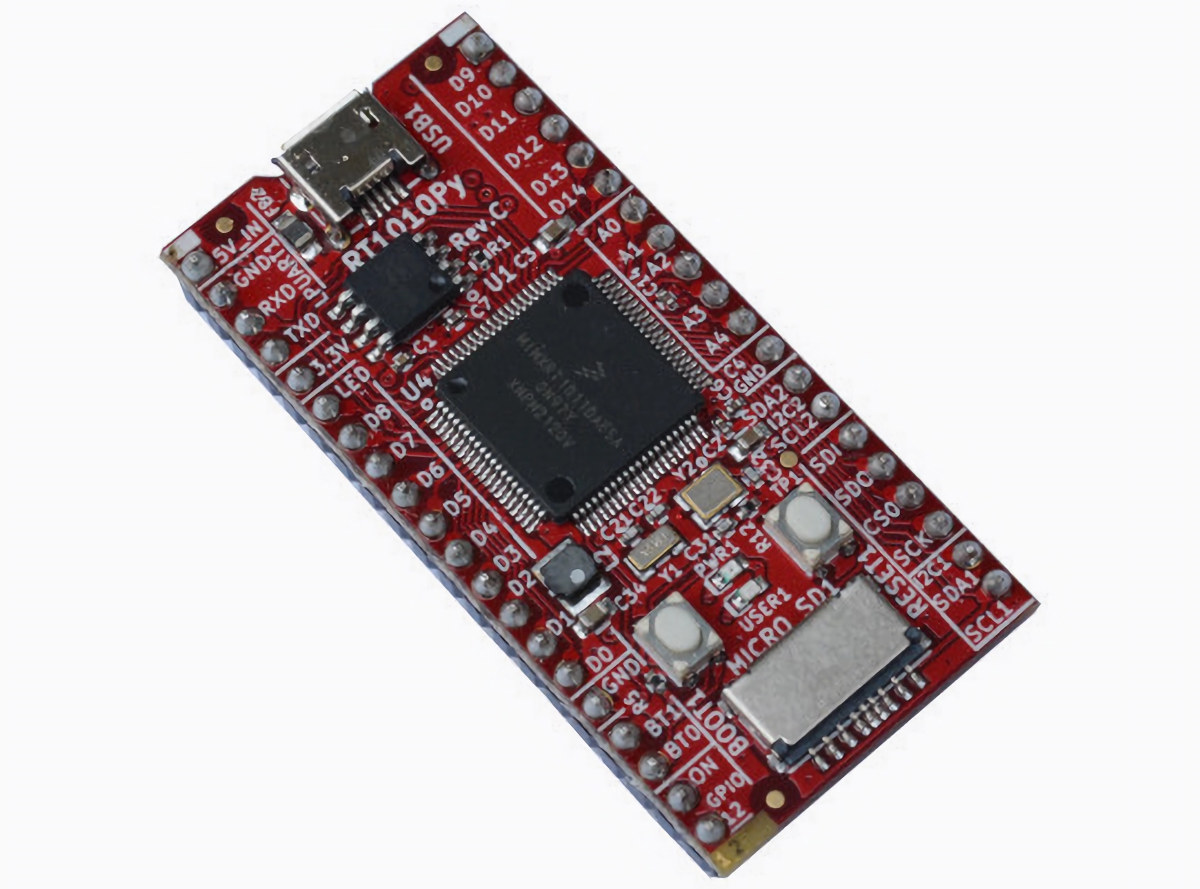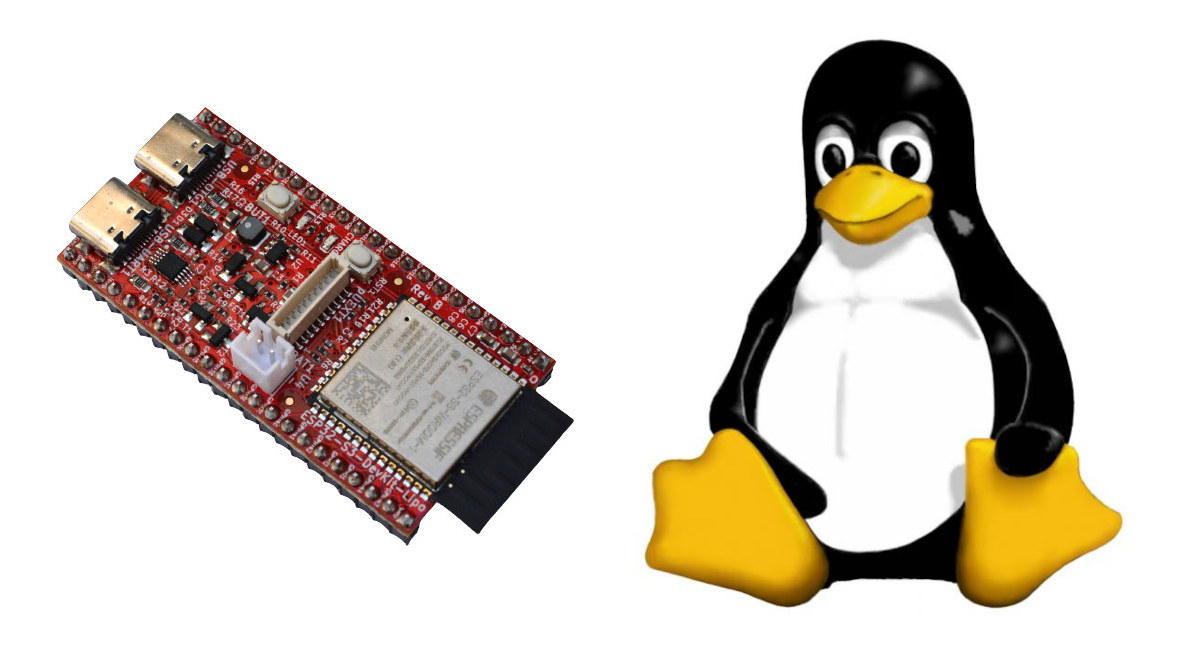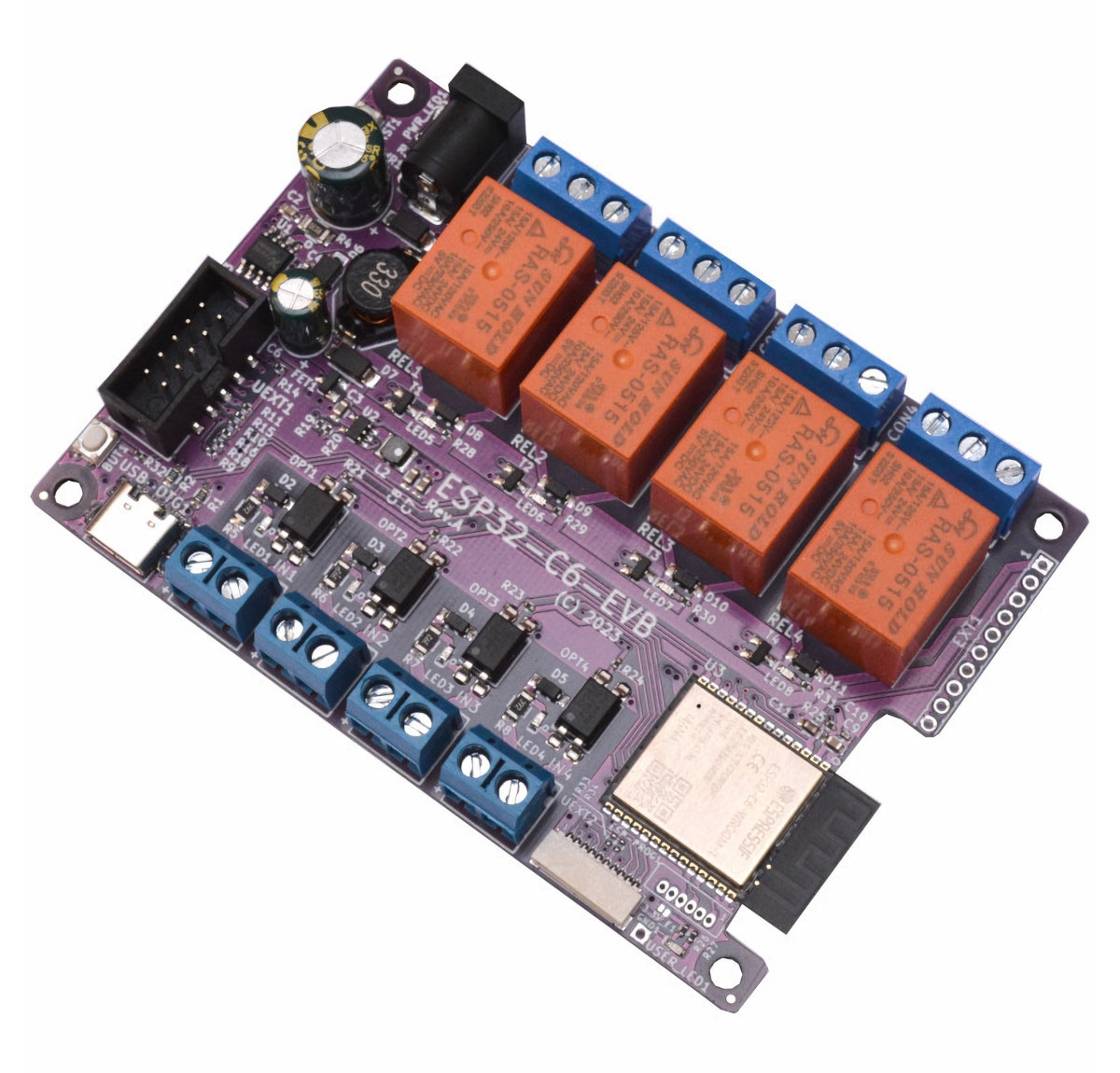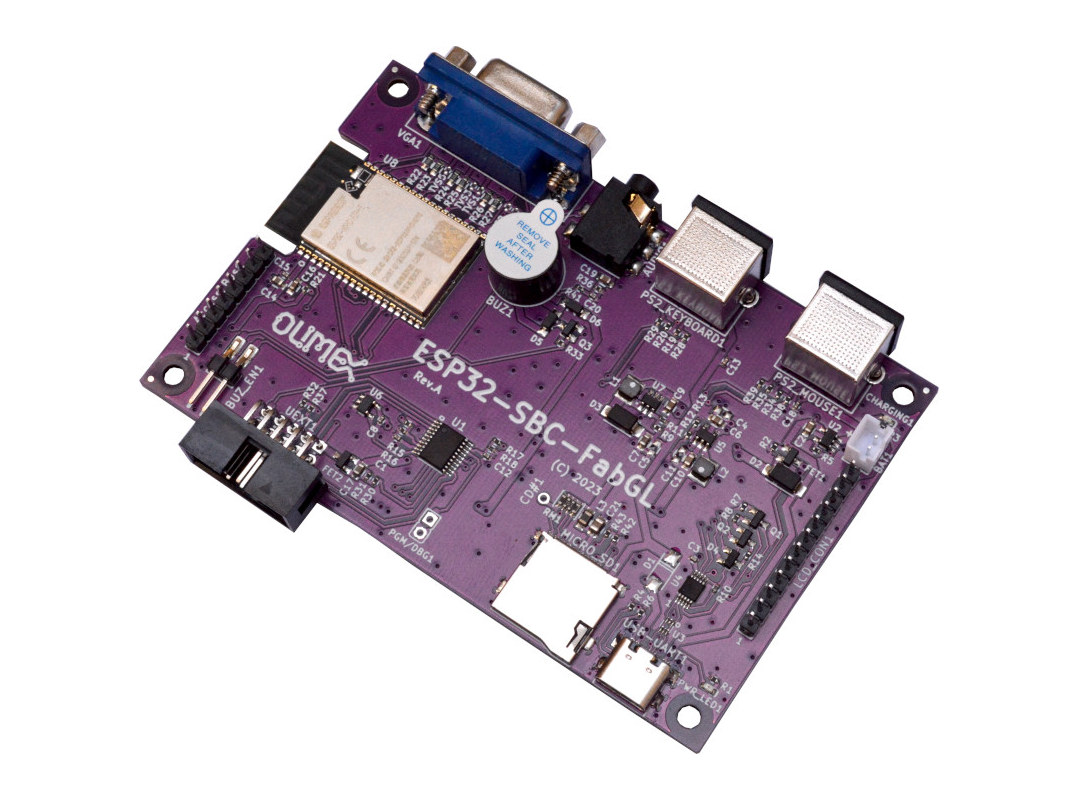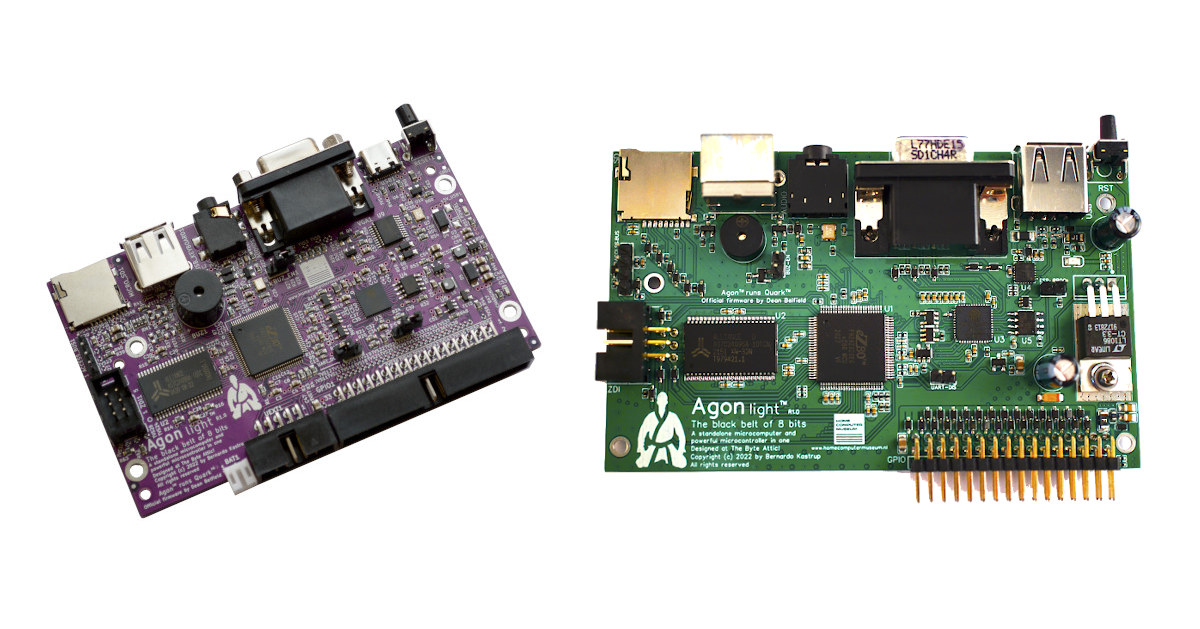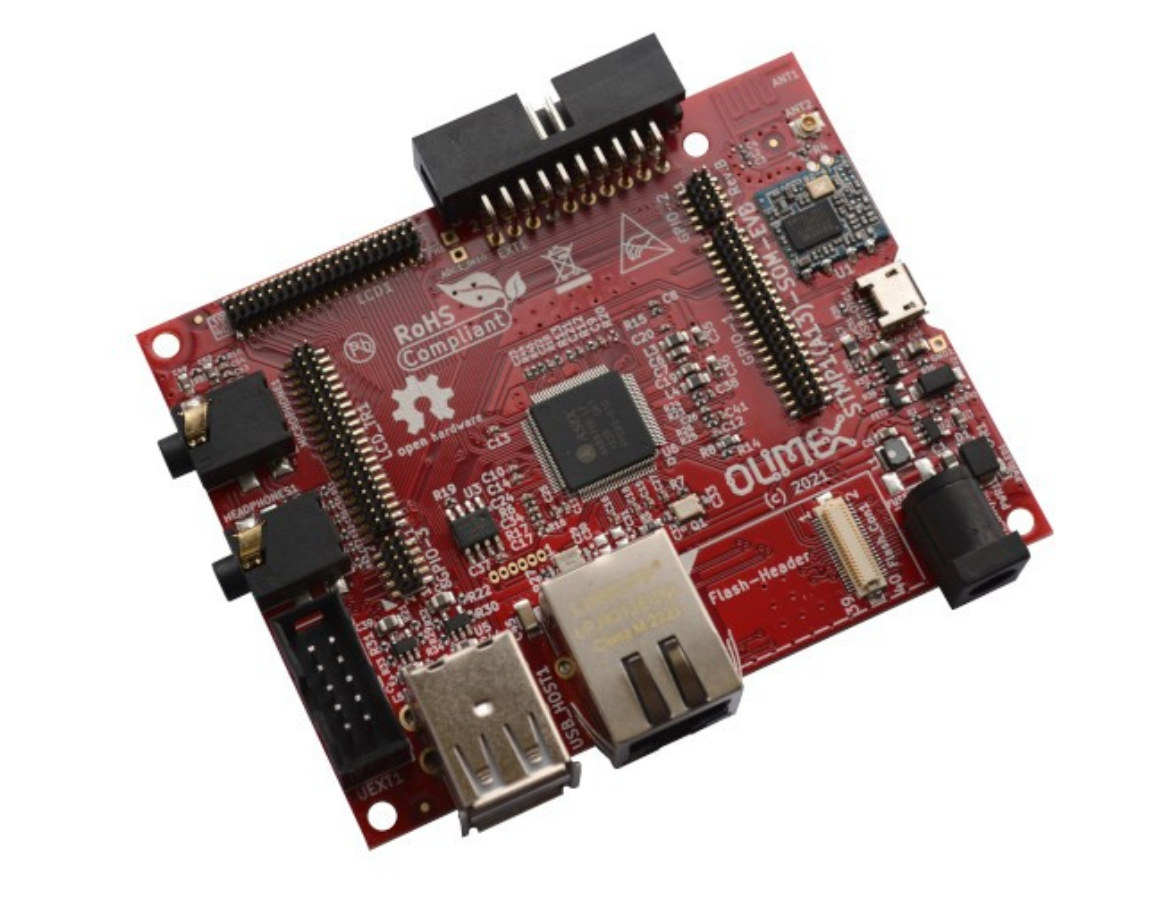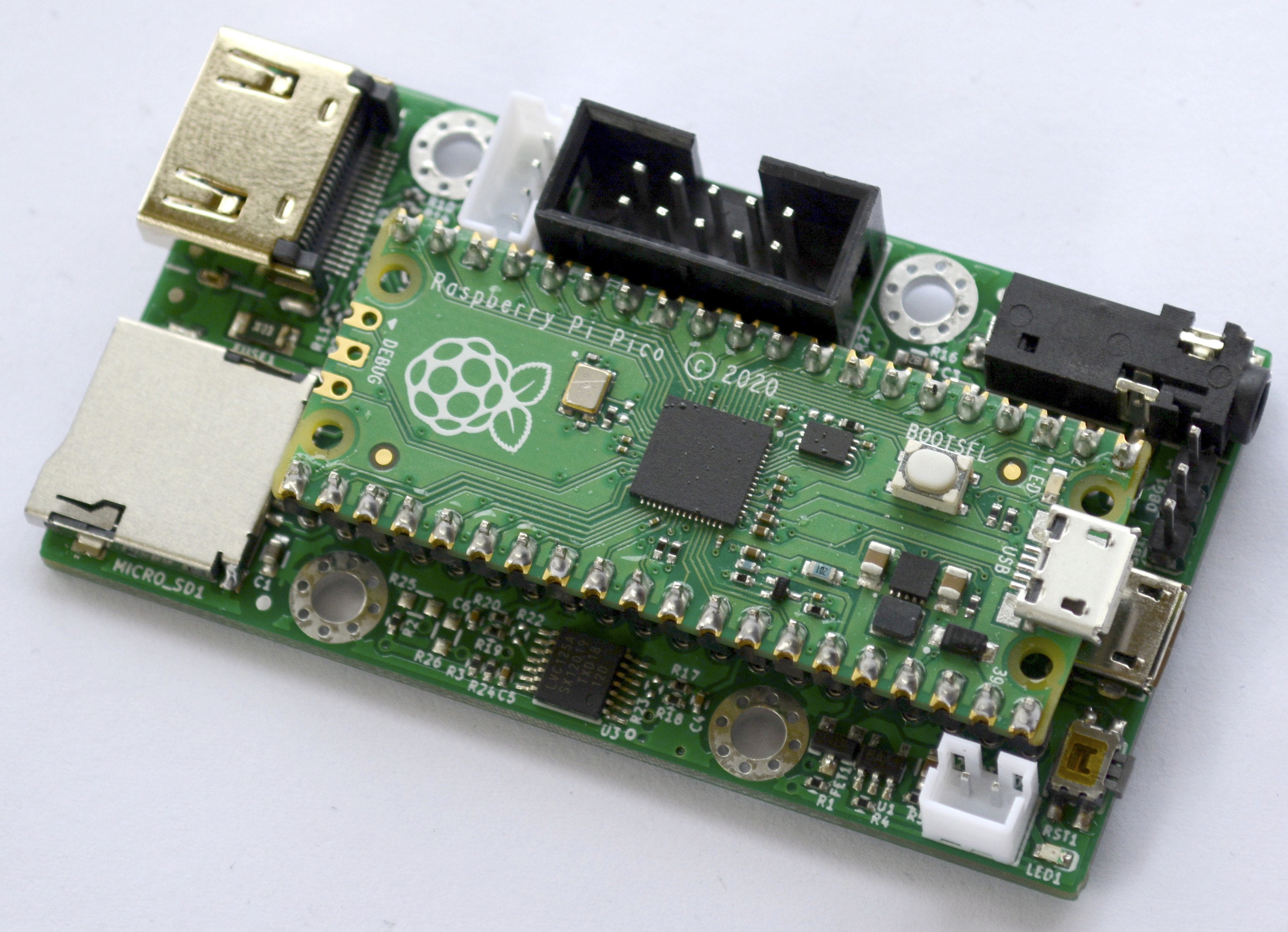Olimex RT1010-Py is a small development board powered by a 500 MHz NXP i.MX RT1011 Cortex-M7 MCU designed to run MicroPython and about four times faster than the Raspberry Pi Pico. The board comes with two 20-pin GPIO headers exposing various interfaces such as SPI and I2C, a microSD card slot for storage, two buttons, and a USB-C Type port for power and programming. The RT1010-Py also includes a 12-pin fUEXT connector to connect Olimex’s UEXT modules via a flat cable. Olimex RT1010-Py specifications: SoC – NXP iMX RT1011 crossover microcontroller with an Arm Cortex-M7 clocked at 500 MHz and 128KB SRAM/TCM Storage – 2MB SPI Flash, microSD card slot USB – 1x USB 2.0 OTG Type-C port Expansion 2x 20-pin headers with up to 15x GPIO, 3x UART, 2x SPI, 2x I2C, 1x I2S, 4x PWM. 5x analog input fUEXT connector (12-pin flat cable 0.5 mm step connector) with […]
12 Euros ESP32-S3-DevKit-LiPo board runs Linux 6.3
Olimex ESP32-S3-DevKit-LiPo is a new open-source hardware ESP32-S3 board with 8MB flash, 8MB PSRAM, as well as LiPo battery and JTAG support that can run Linux 6.3, or the more traditional Arduino or MicroPython firmware. The board is based on the ESP32-S3-WROOM-1-N8R8 module, features two USB-C ports for power, programming, and JTAG debugging, plenty of expansion with two rows of I/Os plus a pUEXT connector, Reset and Boot buttons, and a couple of LEDs. ESP32-S3-DevKit-LiPo specifications: Wireless module – Espressif ESP32-S3-WROOM-1-N8R8 with SoC – ESP32-S3 dual-core LX7 microprocessor @ up to 240 MHz with Vector extension for machine learning, WiFi 4 & Bluetooth 5 LE/Mesh Memory – 8MB OSPI PSRAM Storage – 8MB QSPI flash PCB antenna Dimensions – 25.5 x 18.0 x 3.1 mm USB 1x USB Type-C OTG port also used for JTAG/Serial 1x USB Type-C port for USB-serial programming and power Expansion 2x 22-pin GPIO headers pUEXT […]
Olimex ESP32-C6-EVB supports WiFi 6, BLE, Zigbee, comes with four relays, four opto-isolated inputs
Olimex ESP32-C6-EVB is an open-source hardware board based on an ESP32-C6 wireless module with 2.4 GHz WiFi 6, Bluetooth LE, and Zigbee connectivity, and offering four relays and four opto-isolated inputs, as well as further expansion via two UEXT connector. So far we had a limited amount of third-party ESP32-C6 boards, with Espressif making their own module and development board available in January, and 01Space launching a tiny ESP32-C6 board in April, a time when a lot of software work was still needed. But the ESP-IDF v5.1 with ESP32-C6 support is nearing release (now RC2), and the Olimex board may mark the start of greater availability of ESP32-C6 hardware with stable/usable firmware. ESP32-C6-EVB specifications: Wireless module – ESP32-C6-WROOM-1-N4 module with Espressif Systems ESP32-C6 single core 32-bit RISC-V processor @ 160 MHz with 2.4 GHz WiFi 6 1T1R with Target Wake Time (TWT) support, Bluetooth LE 5.0, and 802.15.4 radio for […]
Olimex ESP32-SBC-FabGL board runs DOS, offers VGA , PS/2 keyboard and mouse connectors
Olimex ESP32-SBC-FabGL is an ESP32 single board computer that can serve as the brain of a retro computer with a VGA port, a 3.5mm audio jack, and two PS/2 ports for a keyboard and mouse that are handled by the open-source FabGL graphics library. The board also comes with a microSD card slot, a buzzer, and various expansion interfaces, and can be powered via its USB port or a LiPo battery. FabGL implements several emulators including an Intel 8080 CPU emulator that allows the system to run various versions of DOS among other things. ESP32-SBC-FabGL specifications: Wireless module – ESP32-WROVER dual-core WiFi and Bluetooth module with 4MB flash, 8MB PSRAM Storage – MicroSD card slot Display – VGA connector, 12-pin LCD HAT connector to enable handheld designs Audio – 3.5mm audio jack, built-in buzzer USB – 1x USB-C port for power and programming User inputs – PS2 keyboard connector, PS2 […]
Olimex AgonLight2 8-bit open-source hardware computer sells for 50 Euros
Olimex has started to take pre-orders for the AgonLight2, a customized version of the Agon Light 8-bit open-source hardware computer based on the Z80 family and running BBC Basic. Bernardo Kastrup and Dean Belfield created the Agon light 8-bit retro computer with VGA and PS2 keyboard port and programmable with BASIC earlier this year and released all hardware design files, the firmware, and documentation on GitHub, and Dean uploaded a one-hour-long video on YouTube. It was designed with EasyEDA, but Olimex re-captured the design in KiCad after getting customer requests, and the new cost-optimized board named AgonLight2 will start shipping by the end of January 2023. AgonLight2 specifications: MCU – Zilog eZ80F92 8-bit microcontroller @ 18.423 MHz with 128 KB flash, 256 bytes configuration Flash memory, 8 KB SRAM (See PDF datasheet for details) System Memory – 512KB, 10ns, parallel SRAM Storage – MicroSD card socket Terminal subsystem MCU – […]
FOSDEM 2022 schedule with embedded Linux, IoT, automotive… sessions
While typically taking place in Brussels, Belgium, FOSDEM 2022 will take place online just like FOSDEM 2021 due to COVID-19 restrictions. The good news is that it means anybody can attend it live from anywhere in the world, and makes it more like “FOSDIM”, replacing European with International, in “Free and Open Source Developers’ European Meeting”. FOSDEM 2022 will take place on February 5-6 with 637 speakers, 718 events, and 103 tracks. I’ve made my own little virtual schedule below mostly with sessions from the Embedded, Mobile and Automotive devroom, but also other devrooms including “Computer Aided Modeling and Design”, “FOSS on Mobile Devices”, “Libre-Open VLSI and FPGA”, and others. Saturday, February 5, 2022 12:30 – 13:00 – Five mysteries in Embedded Linux by Josef Holzmayr Once you start out in embedded Linux, there is a lot to do. Some things are obvious, some less so. First and foremost, […]
Olimex STM32MP1 SoM and evaluation board support Linux 5.10
Olimex has just announced the availability of an STMicro STM32MP1 Cortex-A7/M4 powered system-on-module (SoM) and an evaluator board with respectively STMP15X-SOM available in extended and industrial temperature variants, as well as STMP1(A13)-EVB evaluation board that works with the new STM32MP1 module, as well as earlier A13-SOM Allwinner A13 based system-on-module. Beyond the hardware, the company told us their upcoming STMP1-OLinuXino-LIME2 SBC could support mainline Linux in February, and the company prepared some Linux 5.10 based Debian Buster and Ubuntu Focal images which are now also available for the STMP15X-SOM module. STMP15X-SOM system-on-module Specifications: SoC – STMicro STM32MP151/153/157 dual-core Cortex-A7 @ 650 to 800MHz and Arn Cortex-M4 real-time core @ 209 MHz System Memory – 256 or 512 MB DDR3L Storage – MicroSD card socket Audio – On-module audio codec Board-to-board connectors GPIO-1 40-pin connector with 39 GPIOs, 3x UARTs, 1x QuadSPI, 2x I2C, 2x eMMC GPIO-2 10-pin connector with USB […]
Olimex RP2040-PICO-PC “computer” to feature RP2040-Py Raspberry Pi Pico compatible module
We previously wrote it was possible to create a Raspberry Pi RP2040 board with HDMI using DVI and programmable IOs to output video up to 640×480 at 60 Hz with the microcontroller’s Cortex-M0+ cores clocked at 252 MHz. At the time, we also noted Olimex was working on such a board with RP2040-PICO-PC designed to create a small Raspberry Pi RP2040 computer with HDMI/DVI video output. The Bulgarian company has now manufactured the first prototype, but due to supply issues with the Raspberry Pi Pico board, they also designed their own RP2040-PICO module since they’ve got a reel of Raspberry Pi RP2040 microcontrollers. RP2040-PICO-PC small computer board Specifications: Support for Raspberry Pi Pico board Storage – MicroSD card Video Output – HDMI port with DVI signal (note no audio through this interface) Audio output – 3.5mm audio jack Expansion UEXT connector with UART, SPI, I2C, 3.3V, and GND to attach […]


